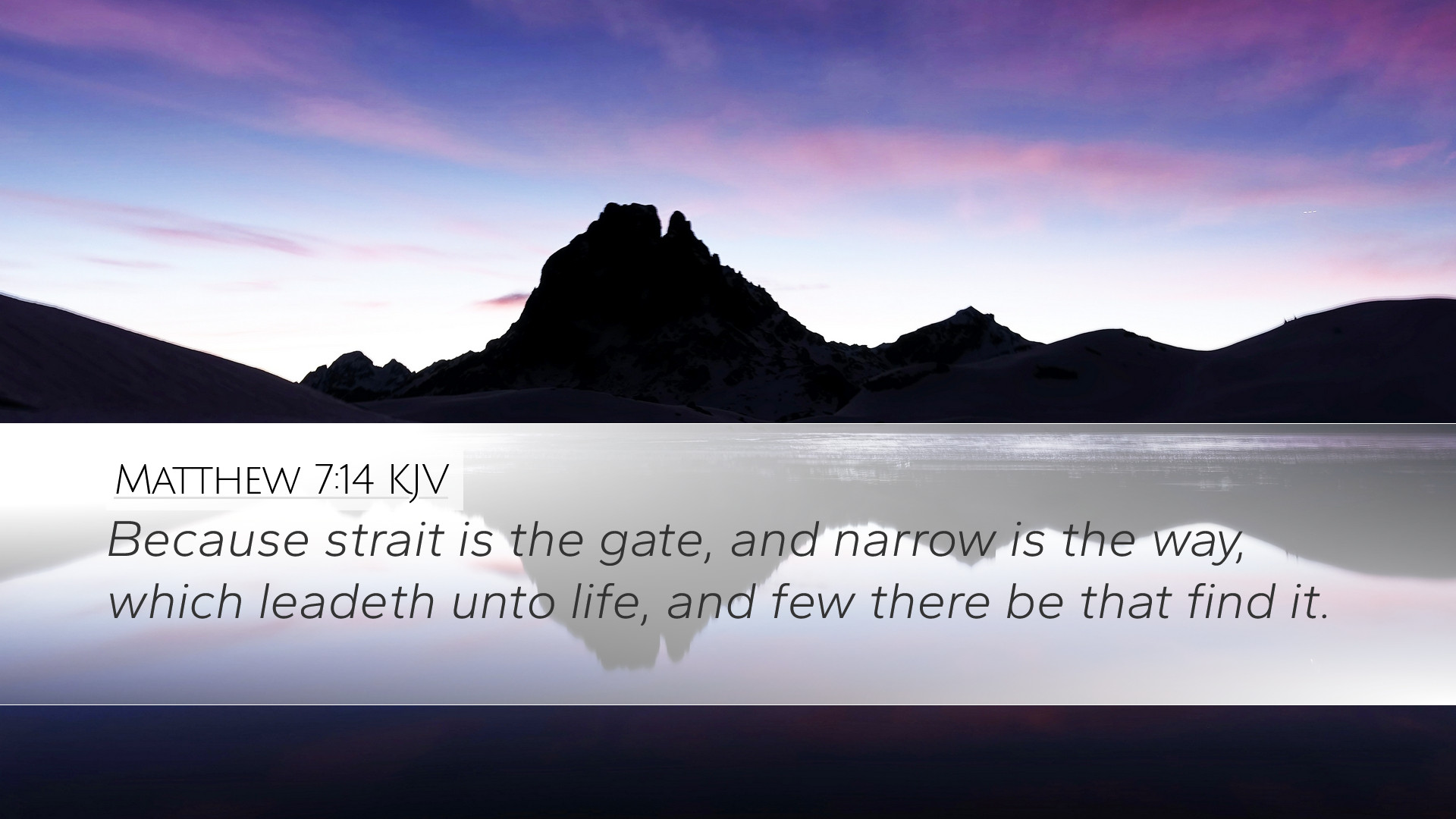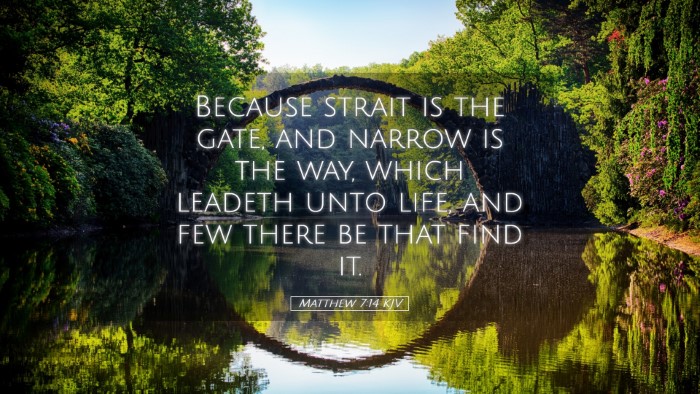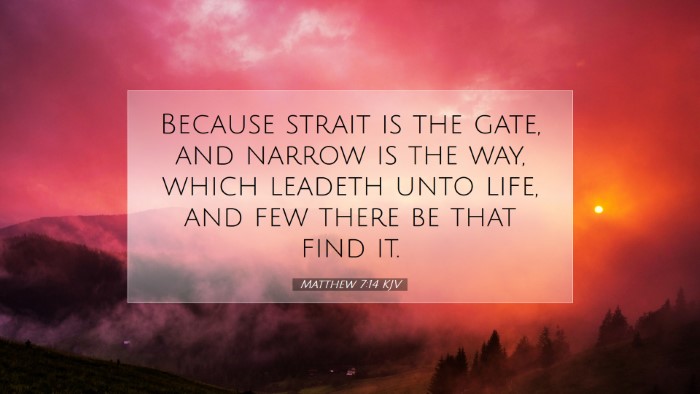Commentary on Matthew 7:14
Verse: "Because strait is the gate, and narrow is the way, which leadeth unto life, and few there be that find it."
Introduction
In this verse, Jesus summarizes the essence of discipleship and the demands of His teachings. The imagery of gates and paths serves as a metaphor for the choices individuals face concerning their spiritual journey. Pivotal to this verse is the contrast between the broad, well-trodden road that leads to destruction and the narrow way that leads to life.
Contextual Analysis
This verse comes at the close of the Sermon on the Mount, a comprehensive teaching guide to Christian ethics and virtues (Matthew 5-7). Here, Jesus sets forth the challenge before His listeners: to choose the path that leads to eternal life amid the distractions and temptations of the world.
The Gate: A Symbol of Choice
The "strait gate" refers not to a physical barrier but to a spiritual choice. This gate represents the entrance into a life of righteousness. As Matthew Henry notes, the gate is "strait," indicating that it is not easy to enter; it requires a conscious decision to follow Christ.
Albert Barnes emphasizes that the straitness of the gate implies that many are unprepared or unwilling to genuinely embrace the demands of following Jesus. The decision to enter through this gate signifies a significant commitment to renounce sin and embrace the radical changes inherent in the Gospel.
The Path: A Road Less Traveled
Following the strait gate, the "narrow way" denotes a challenging and disciplined lifestyle. Adam Clarke explains that the term "narrow" suggests constriction, implying that this path requires self-denial, sacrifice, and perseverance. This road is less popular, as it often leads through trials and tribulations that believers must endure.
- Self-Denial: True discipleship demands that individuals must deny themselves, take up their crosses, and follow Christ (Matthew 16:24).
- Embrace of Suffering: The Christian journey will often encounter suffering, yet it leads to eternal glory (Romans 8:18).
- Obedience: The narrow path requires adherence to God’s commandments and living out His will.
The Contrast of Outcomes
The highlighted contrast in this verse emphasizes two distinct outcomes of one’s life choices. "Few there be that find it" points to the reality that not everyone will choose the narrow way. Matthew Henry observes that the majority are drawn to the broad way of ease and self-indulgence, which ultimately leads to destruction.
Albert Barnes underscores the importance of actively seeking the narrow path. It requires diligence, prayer, and a sincere pursuit of righteousness. In contrast, the broad way lures individuals with temporary pleasures, ultimately resulting in eternal consequences.
Practical Applications
Reflecting on this verse offers several critical insights for believers today:
- Evaluate Personal Choices: Believers should regularly assess their life choices to ensure they align with the teachings of Christ.
- Courage in Discipline: Emphasizing the need for courage and commitment to walk the narrow path, regardless of societal pressures.
- Encourage Others: Sharing the message of the narrow way as one of hope and life, empowering others to make the choice for Christ.
Conclusion
Matthew 7:14 serves as a stark reminder of the narrow way that leads to life. It is a call to intentionality in our spiritual pilgrimage, underlining the necessity of choosing the less-traveled road paved by the sacrifices of Christ. As Adam Clarke concludes, while the journey may be arduous, the promise of eternal life and deep communion with God makes every step worthwhile.


